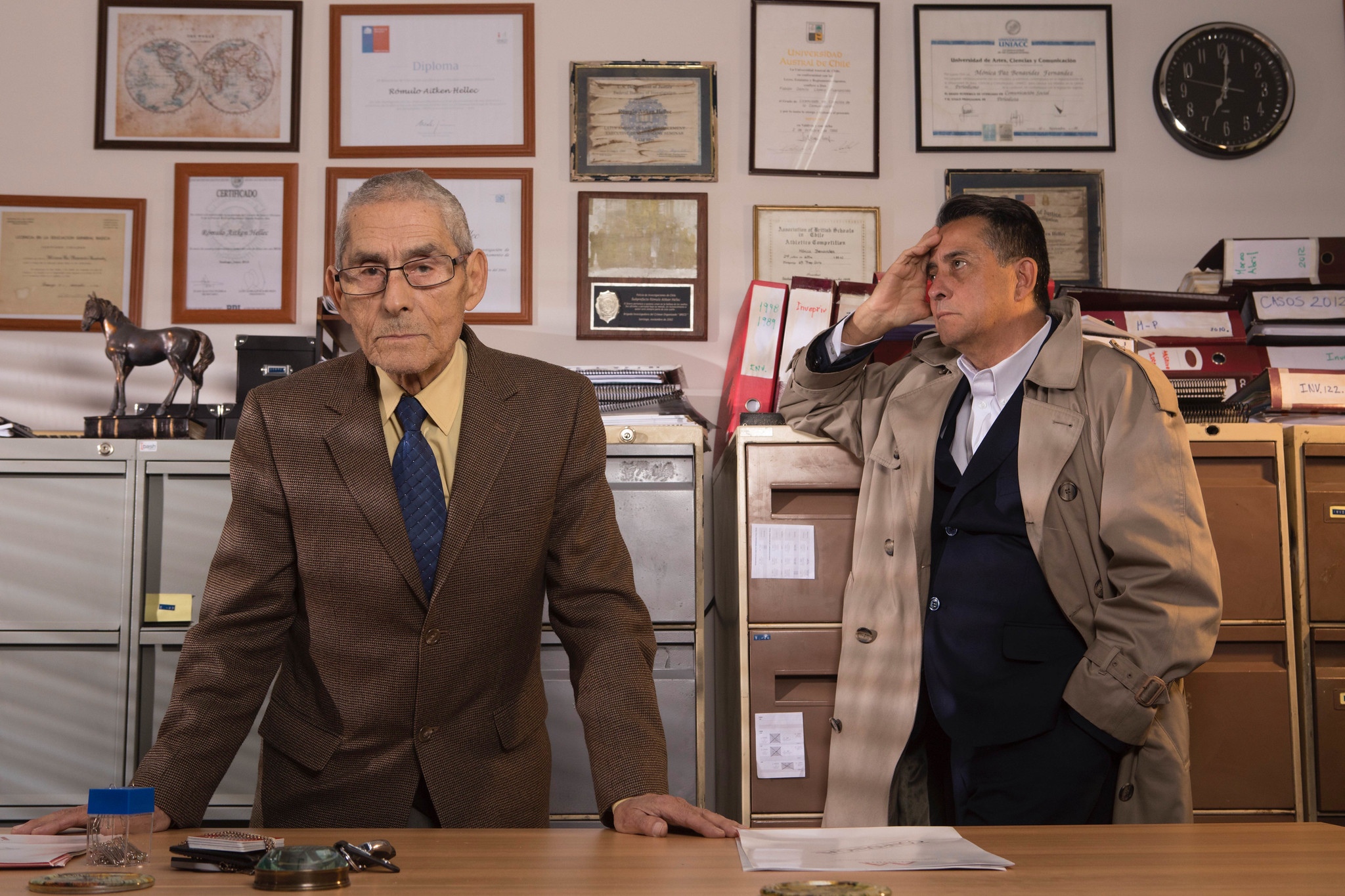‘The Mole Agent’: Film Review
By Amy Nicholson
LOS ANGELES (Variety.com) – Investigator Rómulo Aitken has a fresh recruit. In the opening sequence of Maite Alberdi’s flimsy, genre-stretching documentary “The Mole Agent,” Aitken schools first-time undercover spy Sergio on the secret cameras embedded in his glasses and a pen. It’s a scene from a hundred thrillers, given one new twist: 83-year-old Sergio can barely work his cellphone. Can this grandfather of five handle his assignment?
“The Mole Agent’s” shtick is that Aitken’s off-screen client wants to know if her grandmother’s nursing home is abusive. Aitken placed a help-wanted ad for a tech-savvy octogenarian, and of the half-dozen applicants, all of whom were dazzled an employer wanted them at all, Sergio won the gig to spend three months undercover at the San Francisco Nursing Home on the outskirts of Santiago, Chile. A fraction of Alberdi’s footage comes from Sergio’s hidden cameras. The bulk of it is courtesy of Alberdi’s second ruse: convincing the nursing home to allow a documentary crew to film the daily life of their newest resident, who, of course, happens to be our dapper hero. While Sergio sets out to discover the facts behind the elderly woman’s care, viewers get tangled in their own mystery: Why didn’t the suspicious granddaughter didn’t just hire the faux filmmakers? But in noir, the solution is rarely as satisfying as the setup. Even the Maltese Falcon was merely a pretense for adventure.
Though “The Mole Agent” is billed as a documentary, the audience struggles to suspend belief. The brash Aitken, who decorates his office with photos of “Scarface’s” Tony Montana and a bullet-riddled license plate that reads “Al Capone,” could have sauntered right out of goon-squad Central Casting. When the cineaste gives himself the role of Sergio’s doting godson – really, just an excuse to continually crow, “Godfather!” – he seems too in on the gimmick for the audience to trust how honestly Alberdi has dealt the deck.
“The Mole Agent” slyly draws parallels between Sergio’s real-life adventure and thriller clichés. The nursing home, as friendly as it seems, is in essence a prison. Once Sergio enters, he cedes his autonomy to the staff. (Paging Nurse Ratched.) On day one of his incarceration, Sergio gets sized up by the cafeteria. Instead of slipping Sergio a shiv, a woman palms him her pudding, establishing his reputation as the resident heartthrob. The recent widower is nonplussed to find himself surrounded by femmes fatales, like pickpocket Marta, who steals candy from his jacket. As he pumps her and the others for information, he’s prodded, stroked and befuddled by who to believe. The women aren’t lying – they’re just slipping into senility. He’s stymied by the simplest tasks, like which woman is his target? Even he can’t remember her face.
Alberdi’s comic-caper approach soon fizzles. Like Sergio, the film is hunting for drama, something to merit the 007 guitar and upright bass riffs of Vincent van Warmerdam’s score. Failing that, “The Mole Agent” pads its running time with shots of stray cats and flapping laundry before rejiggering itself for a sincere message about the power of community, as Sergio – a retiree so bored he answered a bizarre job ad – discovers he can still contribute to the world.
“I’m beginning to feel like the person I used to be,” says Sergio. The irony is he’s found himself by playing someone he isn’t. The residents don’t need James Bond. They need a friend. The documentary’s phony framework is a distraction, albeit one necessary to get the story in motion and prod viewers to watch the dwindling days most people would rather avoid.
Alberdi might blanch to hear Humphrey Bogart’s Sam Spade growl, “You gotta convince me that you know what this is all about, that you aren’t just fiddling around hoping it’ll all come out right in the end.” Spade wouldn’t be convinced that “The Mole Agent” has a steady hand on its subject. Yet in moments like when Sergio is crowned King of the Nursing Home and leads a parade around the block, even the cynical detective might concede that the old man’s joy is, like that infamous golden bird, “the stuff dreams are made out of.”

